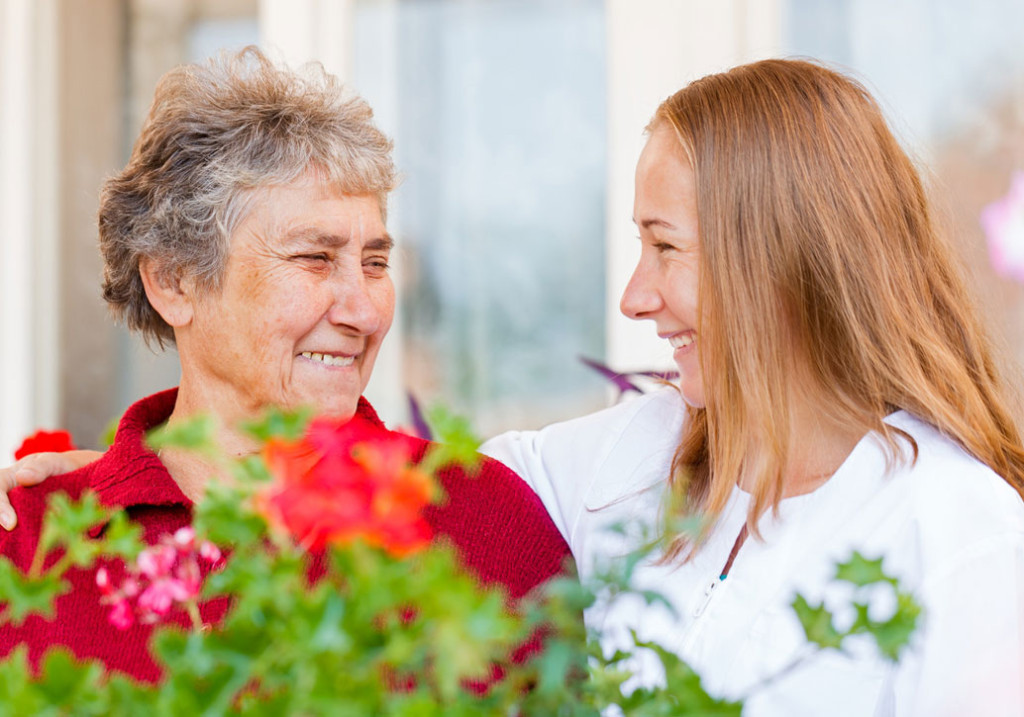It’s not easy. A growing number of families with aging parents and grandparents are facing some very tough questions. Where will their senior loved ones live? Who will care for them? Where can they find affordable care? The goal for many families is to help seniors remain independent and in their own homes as long as possible. Most don’t require constant supervision or medical attention, yet. Right now, all they really need is a helping hand.
“Most seniors want to remain in the comfort and security of their own homes, and can do so safely with a little bit of help,” said Amy Szewczuk, Care Director and Owner of Amy’s Helping Hands. The company provides compassionate caregivers who go to the senior’s home and help with chores, such as light housekeeping, laundry, meal preparation, transportation, bathing, grooming, and medication reminders – tasks that have become difficult for seniors to perform.
“Family members are the largest group of caregivers,” said Szewczuk. “Two and a half million Canadians currently provide eighty percent of the home care. Many have children and jobs or live thousands of miles away. It can be a very stressful situation. By getting some qualified assistance, the result is happier, safer senior with less stress on the family caregivers.”
When does a family know their senior needs help? According to Szewczuk, family members need to consider some assistance when they notice significant changes in the way a senior moves, acts, thinks and responds. However, families often need some objective assistance ascertaining the extent of the problem and deciding on a course of action. Szewczuk says there is no need to guess. She suggests family members ask themselves the following questions; and is there is a concern with even one of these indicators, the family discussed the issue openly, calmly and honestly.
Has there been a medical condition diagnosed that affects daily living?
Has driving become difficult?
Is their weight stable and refrigerator well stocked?
Are household chores being done regularly?
Has personal hygiene and appearance started to become an issue?
Are there signs of moodiness such as loneliness, despair, depression, frustration, irritability or anxiety? A fear of going out of the house?
Do you notice memory lapses and difficulty finding the right words?
Are medications being taken regularly and on time? Does the senior understand what the medications are for and are refills on schedule?
Szewczuk said one of the greatest fears among senior citizens is the fear of falling, because it leads to lost confidence and decreased activity.
“Falling is a primary catalyst for hospital admissions among seniors,” said Szewczuk .
“Falls are also responsible for 40 percent of nursing home admissions and 70 percent of accidental deaths in people over seventy-five years of age. Injuries from falls cost $3 billion each year.”
Szewczuk said that the good news is that most can be prevented. Besides controlling internal physical factors, families can correct cluttered spaces, poor lighting, lack or handrails, unstable chairs and other environments factors to significantly reduce the chances of a serious injury from a fall.
Amy’s Helping Hands provides extensively trained caregivers for seniors and the chronically ill living in the Windsor and Essex County area, including Kingsville and Leamington. Amy’s Helping Hands ensures all of our caregivers are screened, bonded and insured along with having the genuine interest in wanting to make a positive difference in the life of a senior. Families wanting additional help don’t have to give up government funded help through CCAC, we simply add on to the care that is already being provided.
“Our staff is comprised of experienced caregivers – good people with big hearts,” said Szewczuk. “They provide much needed companionship in addition to helping with tasks and chores.”
Anyone interested in more information may visit www.amyshelpinghands.ca or call 519-915-4370















